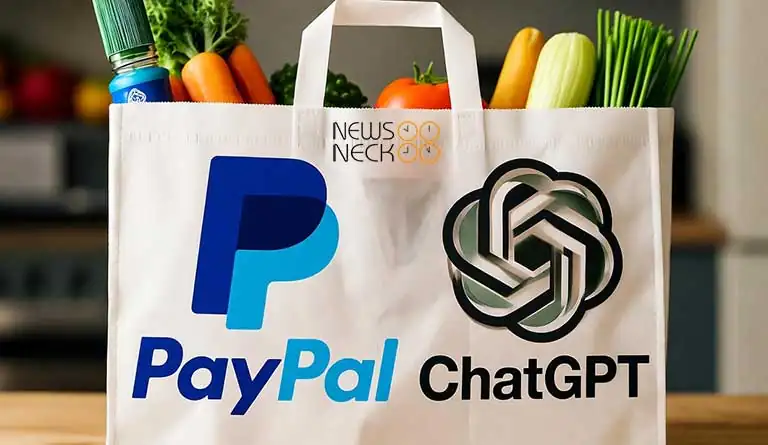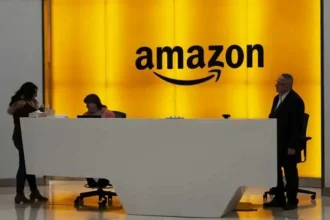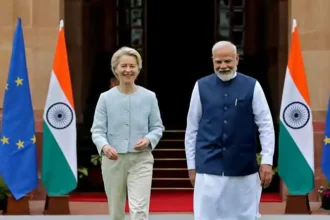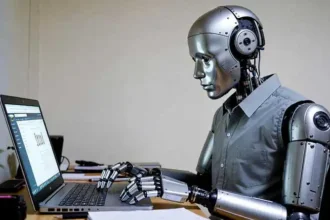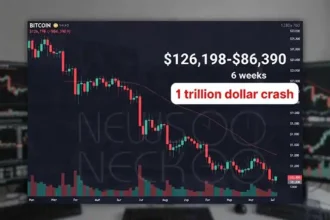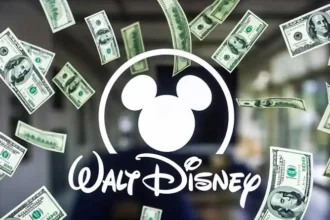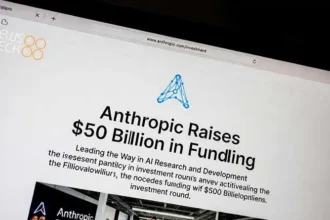Your New Shopping Assistant is an AI: Inside PayPal’s Big Bet on the Future of Buying
Imagine this: You’re chatting with ChatGPT, asking it to help you plan a birthday party. The AI suggests a theme, creates a guest list, and then, almost like magic, it finds the perfect decorations, a cake, and even gifts for your friends. In the past, the conversation would end there. You’d have to open another app, search for the items, and start the tedious process of online checkout.
But now, with a single click, you can buy it all.
This is the new reality coming to ChatGPT next year, thanks to a landmark exclusive deal between the AI pioneer OpenAI and the payments giant PayPal. The agreement, signed over the weekend and confirmed to CNBC, will embed PayPal’s digital wallet directly into the world’s most popular AI chatbot, turning a conversation into a cash register.
For the first time, ChatGPT’s 700 million weekly users will be able to click a “Buy with PayPal” button and complete a purchase without ever leaving the chat. It is a bold move that could fundamentally change how we shop online, and it marks a critical comeback attempt for PayPal in the high-stakes race to control the future of digital payments.
From Conversation to Checkout
The deal is simple in concept but profound in its implications. Starting in 2025, when a ChatGPT user discovers a product through the AI whether by asking for a “new winter coat” or “organic dog food” they will see the familiar PayPal button.
“We’ve got hundreds of millions of loyal PayPal wallet holders who now will be able to click the ‘Buy with PayPal button’ on ChatGPT and have a safe and secure checkout experience,” PayPal CEO Alex Chriss said in an exclusive interview.
But this isn’t just about making things easier for buyers. The other side of PayPal’s ecosystem its massive network of millions of merchants will also be plugged into ChatGPT. Their products will be discoverable through the AI, effectively giving them a new, AI-powered storefront. PayPal will handle all the complex back-end work, like payment validation and routing, so individual shop owners don’t have to strike a separate deal with OpenAI.
“It’s a whole new paradigm for shopping,” Chriss said. “It’s hard to imagine that agentic commerce isn’t going to be a big part of the future.”
You Might Like it: Elon Musk’s $1 Trillion Tesla Plan and His War on Corporate Terrorists
The Trust Factor in an AI World
In an age of growing online scams and data breaches, trust is the most valuable currency. Chriss emphasized that this is PayPal’s key advantage. Both the consumers with PayPal wallets and the merchants selling on its platform have been verified by the company.
“It’s not just that a transaction can happen,” Chriss explained. “It’s about having a reliable network of merchants combined with the biggest base of verified consumers in one digital wallet.”
This means a user can be more confident that the product an AI recommends is from a real business, not a scammer. They will get PayPal’s standard purchase protections, package tracking, and dispute resolution, all within a system they already know. The payment can draw from a linked bank account, credit card, or their existing PayPal balance.
A Strategic Gambit for PayPal
For PayPal, this deal is about much more than a new sales channel. It is a strategic masterstroke to position itself as the essential plumbing for the next generation of online commerce, often called “agentic commerce.”
This term refers to a future where AI “agents” act on our behalf researching, comparing, and buying products for us. By getting its payment system hardwired into ChatGPT first, PayPal is aiming to become the default choice for these AI transactions, much like it was for the early days of eBay.
The company has been signaling this direction for a while, announcing recent partnerships with Google and the AI search firm Perplexity. But the OpenAI deal is the crown jewel, placing PayPal at the very center of the AI revolution.
The partnership is a two-way street. In a separate but related move, PayPal also told CNBC it is expanding its internal use of OpenAI’s enterprise software. The goal is to use AI to speed up its own product development cycles, essentially using its partner’s tools to build a better product for its partner.
The Big Picture: AI Reshapes E-Commerce
OpenAI is clearly building a commerce ecosystem. Last month, it integrated with platforms like Shopify and Etsy. Just two weeks ago, it announced a deal with Walmart. The ChatGPT platform is rapidly evolving from a novelty that writes poems and essays into a powerful gateway for the global economy.
This shift presents a challenge to traditional online shopping. Instead of typing keywords into a search bar on Amazon or Google, we may simply tell an AI what we need and let it do the legwork. The company that processes the payment for that new habit stands to earn a fortune.
The deal is a win for OpenAI, too, giving it a proven, trusted payment system to make its platform more useful and “sticky” for users. For consumers, it promises a future of effortless shopping. And for PayPal, it is the chance of a lifetime a opportunity to move from being a button on a website to the beating heart of commerce in the age of artificial intelligence. The race to define how we shop for the next decade is on, and the starting gun has just been fired.
Author: Yasir Khan
Date: 28 Oct, 2025
For More Updates, Visit Newsneck


